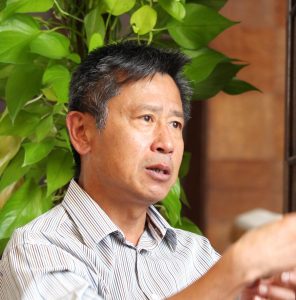Staff Page / Affiliated Faculty
KONO, Yasuyuki

- Research Departments・Position
- Environmental Coexistence
Affiliated Professor - Area
- Southeast Asian studies, Agricultural science
- Research Interests / Keywords
- ・Sustainable humanosphere studies
・Dynamics of agriculture and livelihood transition of rural Southeast Asia
・Regional and Local societies and STI for SDGs - Contact
- kono.yasuyuki.8m@kyoto-u.ac.jp
KONO, Yasuyuki
Overview
Sustainable humanosphere studies
The human society has rapidly developed during the last several decades under the conditions of moderate climate and cheap fossil and fresh water resources. However, the emerging critical issues including global climate changes, degrading natural resources and loss of biodiversity strongly suggest the necessity of societal transformation. This topic explores a new direction of development based on the development process of Southeast Asian societies.
Dynamics of agriculture and livelihood transition of rural Southeast Asia
Rural Southeast Asia is experiencing labor drain to urban areas and agricultural industrialization in terms of management and technology. These movements may lead the collapse of conventional subsistence-based peasant society. Simultaneously, rural community is expected to be the main player of natural resources conservation to cope with the deterioration of natural environment at the regional and global levels. This study focuses on these dynamics of agriculture and rural society of Southeast Asia.
Regional and Local societies and STI for SDGs
Sustainable Development Goals (SDGs) are the comprehensive aim of global society to achieve society of “leave no-one behind”, and science, technology and innovation is recognized as the main driving force. This topic explores the questions that what are the substantial impacts of setting up the common goals and sharing the tools to achieve them and that what institutions we have to develop to complement the common goals and tools at the global level based on the understanding of diversity of natural environment and historical process of local societies.